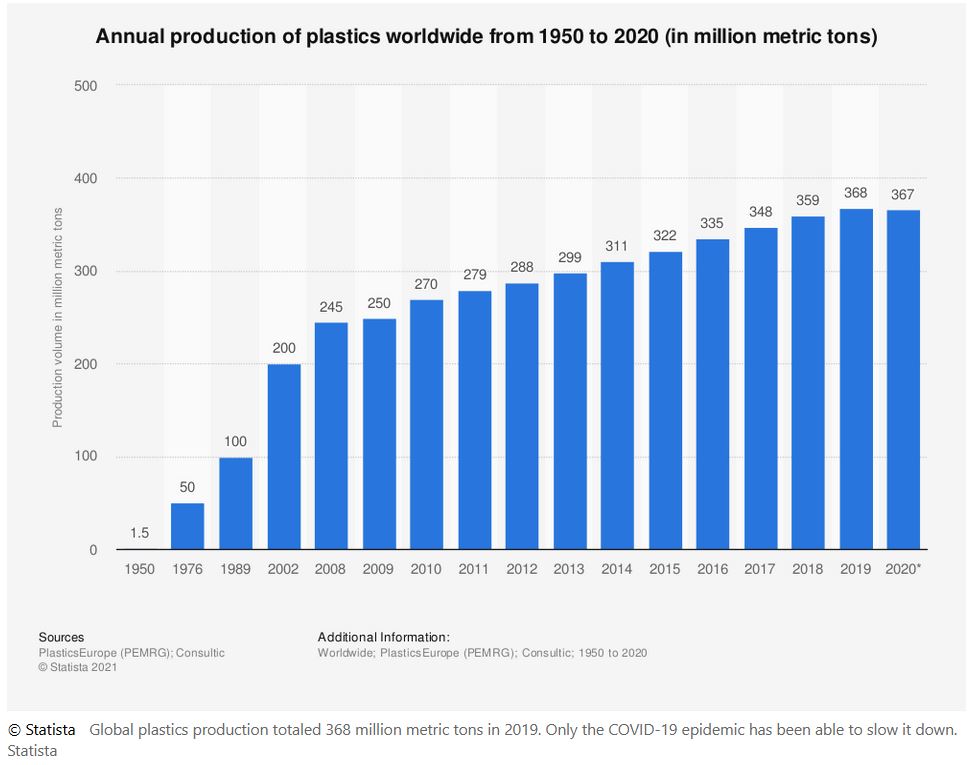 By B.N. Frank
By B.N. Frank
It’s great that scientists are working on new ways to recycle plastic waste. But food for you to eat as well as feed your children and your pets?! Strangely enough, that’s already happening.
Last month scientists announced that they could convert plastic waste into vanilla flavoring. More recently it’s been announced that they can convert it into “edible protein”.
From MSN:
‘Generator’ Turns Plastic Trash Into Edible Protein
Georgina Jadikovskaall, Zenger News
The 2021 Future Insight Prize went to Ting Lu, a professor of bioengineering at the University of Illinois Urbana-Champaign, and Stephen Techtmann, associate professor of biological sciences at Michigan Technological University, for their project. It uses microbes to degrade plastic waste and convert it into food.
The German science and technology company Merck sponsors the prize. Global plastics production totaled 368 million metric tons in 2019. The only decline in the past 60 years came because the COVID-19 pandemic choked production of goods worldwide as factories sputtered and shipping slowed down.
At least 8 million tons of plastic are dumped into the world’s oceans every year, according to the International Union for the Conservation of Nature.
“The winners of this year’s Future Insight Prize have created a ground-breaking technology with the potential to generate a safe and sustainable source of food, while reducing the environmental harms associated with plastic waste and traditional agricultural methods,” said Belen Garijo, Merck CEO and chair of the executive board.
“We congratulate Ting Lu and Stephen Techtmann for their promising research and hope that the Future Insight Prize will help to accelerate their efforts,” he said.
Two U.S. scientists have won a 1 million euro ($1.18 million) prize for creating a food generator concept that turns plastics into protein.
The two scientists, who call their project a food “generator,” focused on finding an efficient, economical and versatile technology that finds a use for plastics that are at the end of their useful life and would otherwise end up in landfills or oceans.
The resulting foods “contain all the required nutrition, are nontoxic, provide health benefits and additionally allow for personalization needs,” according to Merck.
Image: Pixabay
Become a Patron!
Or support us at SubscribeStar
Donate cryptocurrency HERE
Subscribe to Activist Post for truth, peace, and freedom news. Follow us on Telegram, SoMee, HIVE, Flote, Minds, MeWe, Twitter, Gab, Ruqqus , GETTR and What Really Happened.
Provide, Protect and Profit from what’s coming! Get a free issue of Counter Markets today.
Invention Uses Microbes to Convert Plastic Waste into Edible Protein. But Would You Eat It?
